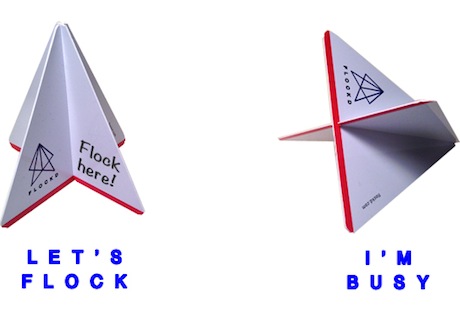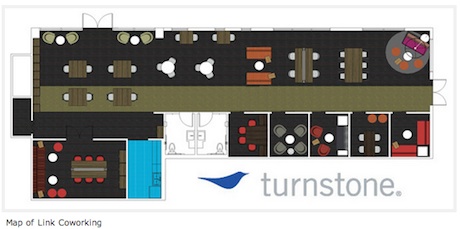Why Your Office Will Disappear
If you’re like most people, you probably work in a large office building alongside colleagues who, much of the time, are away from their seats in meetings, at lunch or traveling for business.
Driven by a global recession, an emerging sharing economy, a more mobile workforce and concern about climate change, COOs, entrepreneurs and other business leaders are looking for ways to make office spaces more efficient. Paying high real estate costs and electric bills for people who use their space 30% of the time doesn’t make good fiscal or environmental sense. For these reasons and more, a drastic change is underway that will make the traditional office as you know it disappear.
Where Will You Work?
Collaborative work spaces everywhere are defining themselves as “coworking spaces,” or workplaces that are shared, fostering productivity, community and collaboration. Good for startups, freelancers, independent workers and entrepreneurs, the trend is growing exponentially. According to Deskmag, the number of coworking spaces has increased 200% annually for seven years. The Global Coworking Unconference Conference (GCUC) convened this month, sharing new strategies for the future.
What Your Office Will Look Like
The architectural silos that separate departments will erode. You will know more about what’s happening in other areas of your organization. Open plans will create cafe-like atmospheres and promote creativity and transparency. Office layouts will be more structured for liquid, easy work.
New workplace tools like Flockd, unveiled at GCUC, will help people across departments start conversations while increasing productivity.
 Flockd offers a new system for people to signal whether they’re free. The available, “Lets Flock,” signal encourages coworkers to interact and connect, while the, “I’m Busy” signal sets clear, healthy boundaries. Better work flow means more free time.
Flockd offers a new system for people to signal whether they’re free. The available, “Lets Flock,” signal encourages coworkers to interact and connect, while the, “I’m Busy” signal sets clear, healthy boundaries. Better work flow means more free time.
Less Stuff, Less Overhead
Sharing an office means the stuff you need, but hardly use, is also accessible to 100 other companies who share your space. One paper cutter for 100 companies instead of 100 paper cutters. And it means the usual overhead, like rent and heating bills, is split among them too.
Proximal Innovation
FastCompany recognizes the serendipitous, positive function of proximity stimulating innovation. A recent study found “the best, most-widely cited research came from coauthors sitting less than 10 meters apart. ‘How closely they worked mattered as much, if not more, than their affiliation,’ says the study’s author, Isaac Kohane of Harvard Medical School. Coworking’s combination of casual relationships and shared spaces, he suggests, can lead to some of an employee’s most fruitful collaborations.”
OfficeEdited = Smarter Business
As big business comes aboard the coworking revolution, the triple bottom line gets better. American Express recently lowered its carbon footprint by 27.5 percent, citing a decrease in business travel and the creation of centers for virtual meetings. Widely recognized for championing economic development and entrepreneurship is Zappos CEO Tony Hsieh, championing Las Vegas and its Downtown Project to become the coworking capital of the world.
The League of Extraordinary Coworking Spaces (LEXC) has become a resource for such corporations expanding their workplace strategy. The organization’s first corporate customer is Accenture. Good for mobile workers, LEXC offers a new work solution for larger companies.
“Facilities plans have been kept too separate from business plans for far too long,” says Brian Macmahon of Your Office Agent, a commercial agency specializing in leaner work space. “Forward-thinking companies of all sizes are exploring these new models.”
Disclosure: The contributor Marissa Feinberg is the shared office space owner of Green Spaces NY, upcoming member of LEXC, cofounder of Flockd and attends GCUC.








Pingback: Business Edited? Or Why Substance Matters More than Size | Micro Business Essentials()